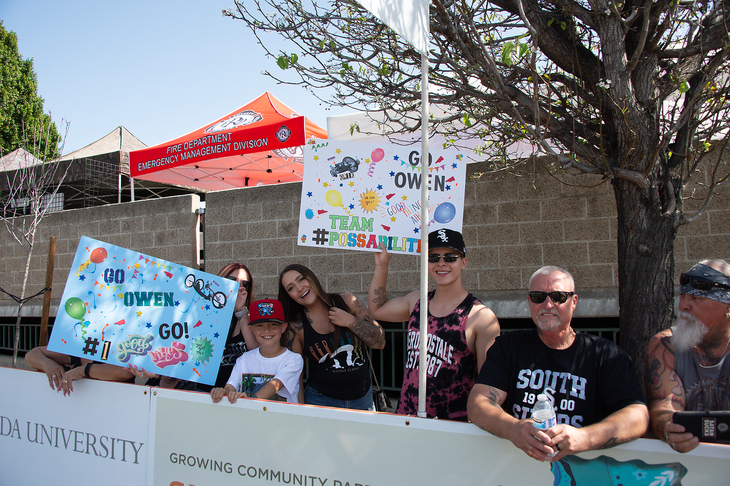The Redlands PossAbilities Para-cycle Race Series wrapped its 13th edition Sunday, following four days of racing.
Competing on the same course as the Redlands Bicycle Classic professionals is a big draw for many who returned to compete each year. Like many races around the country, the event was celebrating its return following a two-year hiatus due to the coronavirus pandemic.
Athletes covered four stages consisting of two crits, a time trial, and a relay, competing in a variety of categories according to their impairment or injury – H for hand cycles, T for trikes, and C for upright and recumbent.
Also read:
- Gallery: Redlands Bicycle Classic stage 5 Sunset Loop
- Mega-gallery: 2022 Redlands Bicycle Classic time trial and criterium
- Gallery: Redlands Bicycle Classic stage 2
Due to the technicality of the courses, upright cycles, tricycles, and tandems only raced the time trial and road race, while hand cycles did all four stages. Currently, there is no recumbent class in the sport, however, Redlands opened the race to allow recumbent bikes to compete in all 4 stages.
The event has grown to be a testing ground for athletes sizing up their competition in preparation for national and world cup events later in the season. Dates conflicted this year with the nationals and world championships, which lead to a smaller field of competitors at the start line.
“It was such a blessing to be back in person after two years,” Race Director Cotie Williams said. “Having our cyclists back together really felt like a family reunion.”
Current national TT and road champion Owen Daniels dominated the series, finishing first in his MH3 category for athletes who are paraplegics, with impairment from T4-T10.
“It was a good race, really fast. I’ve been really pushing the last few days, so I wanted to keep it together the last few laps, just kind of get the crowd into it, to get into pack racing,” Daniels said after his win on Saturday’s relay. “I ended up first, which was the goal for this weekend.”

The sport of para-cycling is relatively young, with hand cycles designed in the late 1990’s. It was not until para-cycling debuted in the Paralympics in 2004 that the sport truly became competitive.
PossAbilities, an outreach program, at Loma Linda University Medical Center teamed up with the Redlands Classic in 2007 in an effort to bring awareness to the sport and for people with disabilities. The PossAbilities Para-cycle event was the first in the country to incorporate all para-classifications on the same course as abled professional athletes.
Since its inception, the race has continued to attract top para-cycle athletes from around the world. The slogan ‘Where Legends Are Born’ holds true for the para-cycle races as well, where many legends in the sport have been discovered.
The race has hosted numerous national and world champions along with Paralympic medalists from around the world.
“It is such a blessing to host a world-class event for para-cyclists and provide them with an opportunity to ride pro courses in their sport,” Williams said. “Some are former pro cyclists that were injured while riding. Hand cycling gives them a different way to cycle post-injury.
“We are so proud that Redlands provides a platform to develop such successful cyclists and even more grateful that Loma Linda University understands that value and supports the race.”
Competitor Paul Brown agrees, enjoying each year as a new experience. It’s not always about the win.
“I’ve been racing this para-cycle race since 2012, every year,” Brown said. “My first year compared to my second, I felt like a complete loser. Now it doesn’t matter whether I win or lose, it just matters that I do it and enjoy the path forward that God has given me.
“I was amputated in 2012 and found the only solution for me was to do this. Racing my bike has helped me feel whole again. That’s what Team PossAbilities has taught us, through the goals at the hospitals and the individuals who are doing this. Today was no exception, it was a great day.”